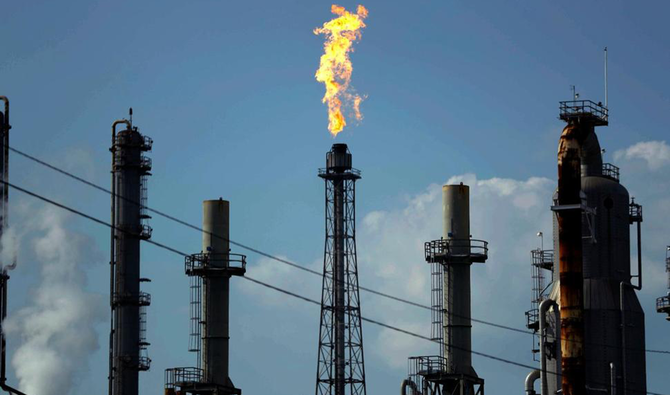
- ARAB NEWS
- 14 Jul 2025

When the Joint Ministerial Monitoring Committee (JMMC) of the Organization of the Petroleum Exporting Countries (OPEC) meets later this week to monitor compliance with the historic production cuts by OPEC+ (an alliance between OPEC and its 10 allies led by Russia), it will closely watch the demand and supply outlook.
On one hand, they can take heart from the International Energy Agency’s (IEA) August oil market report, which was released last week, because it does see a slight supply overhang for the rest of the year. On the other hand, though, the slight downward revisions on demand could prove somewhat worrisome. The IEA forecasts oil demand for 2020 to come in at 91.9 million barrels per day (bpd), down by 140,000 bpd compared to a month ago. The agency equally trimmed down its 2021 forecast by 240,000 bpd to 97.1 million bpd. These forecasts stand against oil demand of about 100 million bpd in 2019.
Last month the JMMC opined that adhering to the original schedule of production cuts agreed by OPEC+ in April was the correct way forward and hence lowered cuts from 9.6 million bpd to 7.7 million bpd. The April agreement foresees cuts to remain in place at these levels through December. A substantial percentage of lower cuts was made up for by countries that did not comply during the second quarter (Iraq, Nigeria and Kazakhstan) and therefore agreed to compensate in the third quarter. These arrangements are in place through September and cushion the supply increase due to pre-agreed relaxation in cuts. This works well, especially as long as markets are slightly undersupplied.
As the IEA report suggests, the industry is not out of the woods yet. The agency’s main concern is air travel, which was down by 80 percent in April and still by 67 percent in July.
The US energy Information Agency (EIA) recorded a draw in crude stocks for the third consecutive week. Crude stocks in the Gulf of Mexico were still 25 percent over where they had been a year ago. Gasoline demand was also back up close to pre-pandemic levels. While these are positive numbers, there hangs a big question mark over resurgent coronavirus cases across the globe and fears of a second wave.
Looking at consumer behavior, people are wary of crossing borders out of fear that quarantine lists may get updated at a rapid pace, as was seen in the UK, where France, the Netherlands and Malta were added to the quarantine list overnight last week. In the US, domestic air travel will resume quicker than air travel in Europe, which is by and large cross-border. People generally favor traveling closer to home and try to stay away as much as possible from public transport out of fear of catching the virus. This is good news for gasoline demand and bad news for demand for jet fuel, which was highlighted in the IEA’s monthly report.
China’s refinery runs were the highest ever as state-owned refineries emerged from maintenance, which is a further sign of China’s economy recovering well from the pandemic.
All in all, markets are roughly — albeit gingerly — balanced. It may be safe for the JMMC to continue on the current trajectory of OPEC+ as long as Iraq, Nigeria and Co. adhere to compensating for past undercompliance. Once these countries emerge from their compensation schedules after September, OPEC+ may need to look at the supply and demand balance as it emerges then. A lot will depend on how the pandemic will have evolved in major markets, further potential lockdowns being bad for demand.
The JMMC does not have the powers to set quotas, but it can recommend. As Saudi Energy Minister Prince Abdul Aziz bin Salman pointed out after last month’s JMMC, OPEC+ has learned to harness telecommunications technology during the COVID-19 crisis, giving it the opportunity to convene a virtual ministerial meeting at short notice, should that become necessary. In the meantime, it will be interesting to see where compliance stood last month.
Last week oil traded up for the third consecutive week for the first time this year. Brent closed at $44.62 per barrel and WTI at $41.89 per barrel mid-morning on Monday.
• Cornelia Meyer is a business consultant, macro-economist and energy expert. Twitter: @MeyerResources